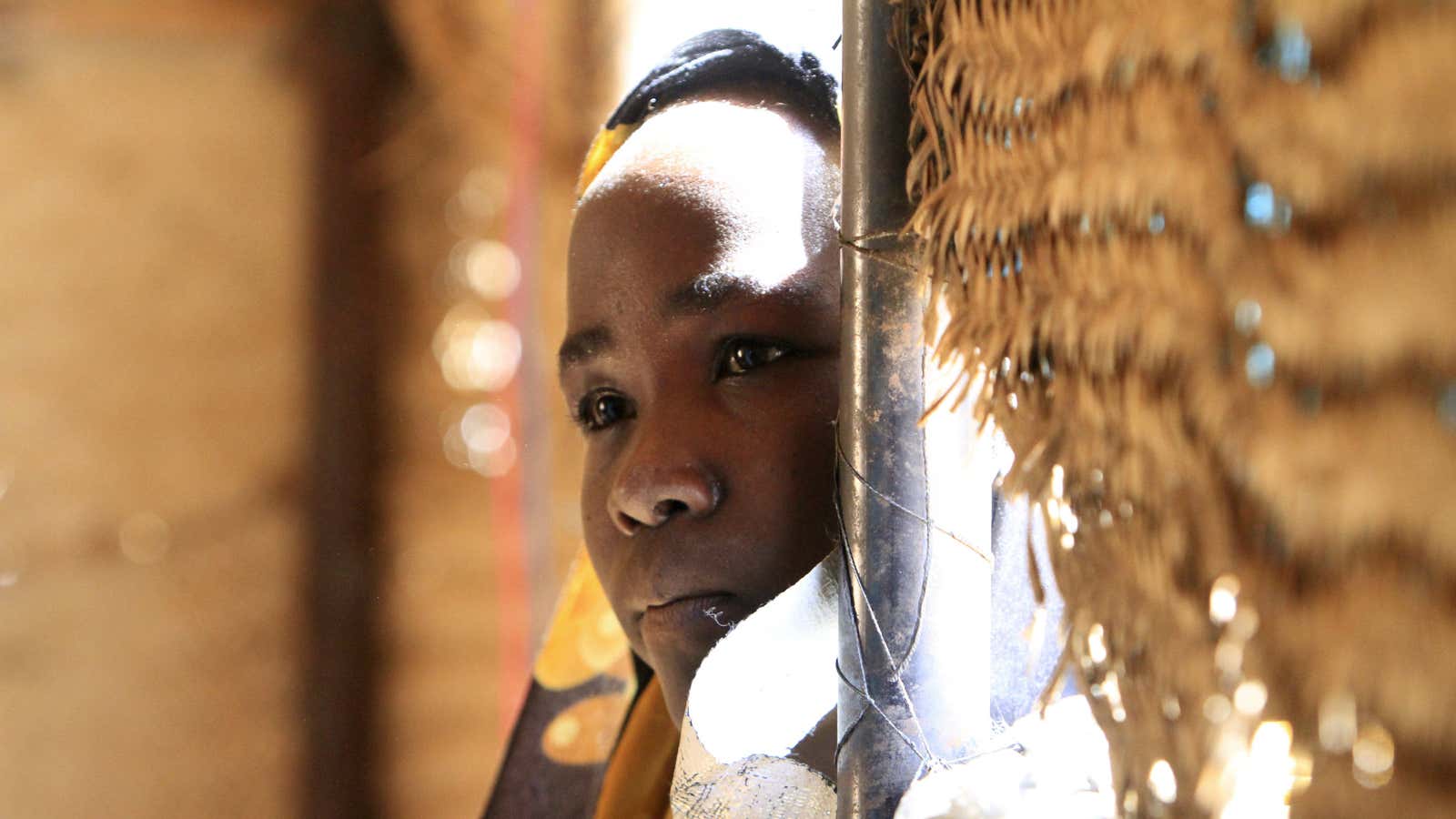Africa’s economic fortunes may be improving, but that doesn’t seem to make its citizens any happier. According to the latest World Happiness Report (pdf), released ahead of UN World Happiness Day (March 20), a majority of the least happy countries are in Sub Saharan Africa.
The report considers happiness to be the “proper measure of social progress and the goal of public policy.” In its rankings, the reports considers six variables: GDP per capita, life expectancy, social support, trust (or absence of corruption in government and business), perceived freedom to make life decisions, and generosity (measured by donations).
The report paints a gloomy picture for Africa as eight of the lowest ten ranked countries are in Sub-Saharan Africa having gathered weak points for GDP per capita, social support and healthy life expectancy.
But the high levels of unhappiness can also be linked to growing awareness among a young, discerning generation of Africans who are more critical and conscious of the shortcomings of their governments, leaders, and local institutions. For one thing Africa’s populations are much younger and faster growing than anywhere else in the world. Another consideration is rising internet penetration and its ability to open up the continent to the rest of the world for some of these young people through platforms like Facebook, Twitter, and Whatsapp among others.
Increasingly, young Africans have pushed for higher standards from their leaders. While the results have no doubt been mixed, the trend is undeniable. In South Africa, the continent’s second largest economy, president Jacob Zuma has been facing immense criticism and pressure over the past year as the #ZumaMustFall protests, led mainly by young South Africans, have demanded his resignation.
Young Nigerians have also found a voice on social media which now serves as a leading platform for political conversations. Perhaps, unhappy with this newfound awareness and in a bid to quell it, Nigerian lawmakers are seeking to pass a bill that would censor social media. Across the continent, internet censorship is a growing trend. In Uganda, a country where 77% of the population are aged 30 or younger, president Museveni’s took to blocking Whatsapp and Twitter during last month’s election.
Of the top ten ranked African countries, Nigeria places 8th. Algeria is Africa’s highest ranked country. Surprisingly, given recent long periods of conflict and unrest, Libya and Somalia are the 3rd and 4th happiest African countries in the report.
The image of the smiling African subservient to presidents-for-life and happy to get by with very little economic advancement may be starting to fade as expectations and global awareness grow. Nearly 40 years ago, the Nigerian Afrobeat legend and pan-African activist, Fela Kuti, famously sang about his people “Shuffering and Shmiling.” The song berated Nigerians (and Africans in general) for putting up with dictator governments’ inflicted hardship with barely a complaint. That may be changing.
